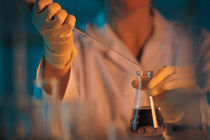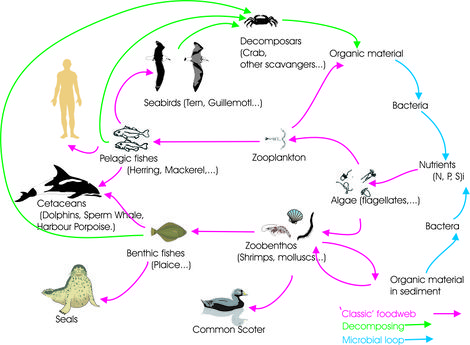Portal:Ecotox
Ecotoxicology
Everything is toxic...
The founder of toxicology, Paracelsus (1493 - 1541) is most famous for his quote “All things are poison and nothing is without poison, only the dose permits something not to be poisonous”. With this, he indicated that in sufficiently large doses all substances can be toxic. So, even water can be lethal if it’s drunk in too large amounts. Salt can be poisonous as well if one eats multiple table spoons of it at once. These examples show that toxicity is relative, it doesn’t only depend on the harmful characteristics of a substance, but also on the level at which an organism was exposed to it. At present there are about 100,000 chemicals known which might cause harm to humans or the environment.
Ecotoxicology
Ecotoxicology is the study of the harmful effects that chemical substances can have on living organisms and the environment. Information on the occurrence of chemicals and their effects on the environment provides an indication of the pollution level and associated risks. Living organisms can accumulate certain chemicals in their bodies, which is called bioaccumulation. Bioaccumulating substances can reach very high concentrations in predators through a process called biomagnification.Usually lab experiments are conducted to expose different types of organisms to the chemical of interest. These experiments provide insights on how the chemical affects an organism, a community or an ecosystem. Additional field studies provide more information on its effects in more natural conditions. These experiments allow to estimate the “safe concentration” of a chemical: the highest concentration of the chemical that doesn’t cause negative effects in the ecosystem.
Purpose of the portal
This portal aims to reach a broad public. It intents to discuss and to clarify recent Belgian (and some Dutch) research related to marine ecotoxicology. Through case studies at different trophic levels you will get acquainted with different groups of toxic substances and their effects on marine and estuarine organisms.


![]()
See also the extensive ecotoxicological portal https://fr.wikipedia.org/wiki/Portail:%C3%89cotoxicologie (in French).
Topics
Did you know?


